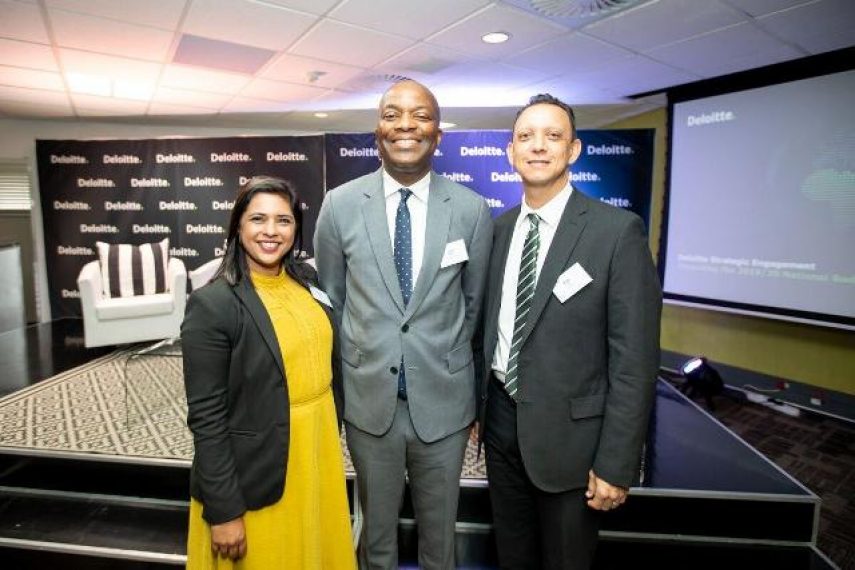HAS the recently released Budget done enough to ensure that the green shoots of growth will take root firmly and resist the rot of corruption and mismanagement, most notably at state-owned enterprises (SoEs) like Eskom? That was a key theme to emerge from a post-Budget breakfast dialogue hosted by Deloitte KwaZulu-Natal at its La Lucia Ridge offices recently.
Deloitte KZN Office Managing Partner Ruwayda Redfearn set the scene by welcoming guests attending the annual event holding a potted aloe, emulating Finance Minister Tito Mboweni’s example when opening his Budget speech.
Mark Freer, Director and Tax Business Unit Leader at Deloitte KZN, unpacked the key taxation elements of the Budget including the significant shortfall in projected tax collections, measures to restructure SARS and the new carbon tax.
“Despite measures to increase tax revenue, including raising VAT by 1 percent and introducing a 45% bracket for those earning more than R1,5 million per year, there’s still a shortfall. We have to ask ourselves whether we’ve reached a tax ceiling,” Freer said.
Busisiwe Radebe, an Economist at Nedbank, attributed the underperformance on revenue collections to dire macro-economic conditions, citing government spending as an example. While this had, on the face of it, increased this year, that was entirely attributable to the significant amount required to keep Eskom afloat.
“To find this money, other cost cutting measures were required, including freezing the public sector wage bill, which could have some serious unintended consequences, for example the early retirement of experienced teachers and nurses,” Radebe said.
Political analyst and broadcaster Justice Malala welcomed the fact that Minister Mboweni had started his speech by emphasising this was a Budget for all the people of South Africa, not just one political party, but he predicted that politics would play a key role in whether many of the measures it contained were fully implemented.
“If the ANC does not receive at least 55 percent support in the upcoming elections, President Cyril Ramaphosa’s reform agenda, and even his tenure, could be in trouble,” Malala said, adding that a weakened ANC would see the EFF in strong position to press the government for major concessions on issues like land expropriation without compensation.
Sisa Ntlango, Deloitte’s Public Sector Leader for KZN and the Eastern Cape, noted that while much of the focus in the Budget had been on Eskom, public education and health faced similar challenges.
“It’s sobering to note that had government been able to eliminate medical malpractices claims, which are draining the fiscus to the tune of more than R100 billion, we would have been able to fix Eskom and have change to spare for other priorities,” Ntlango said.

